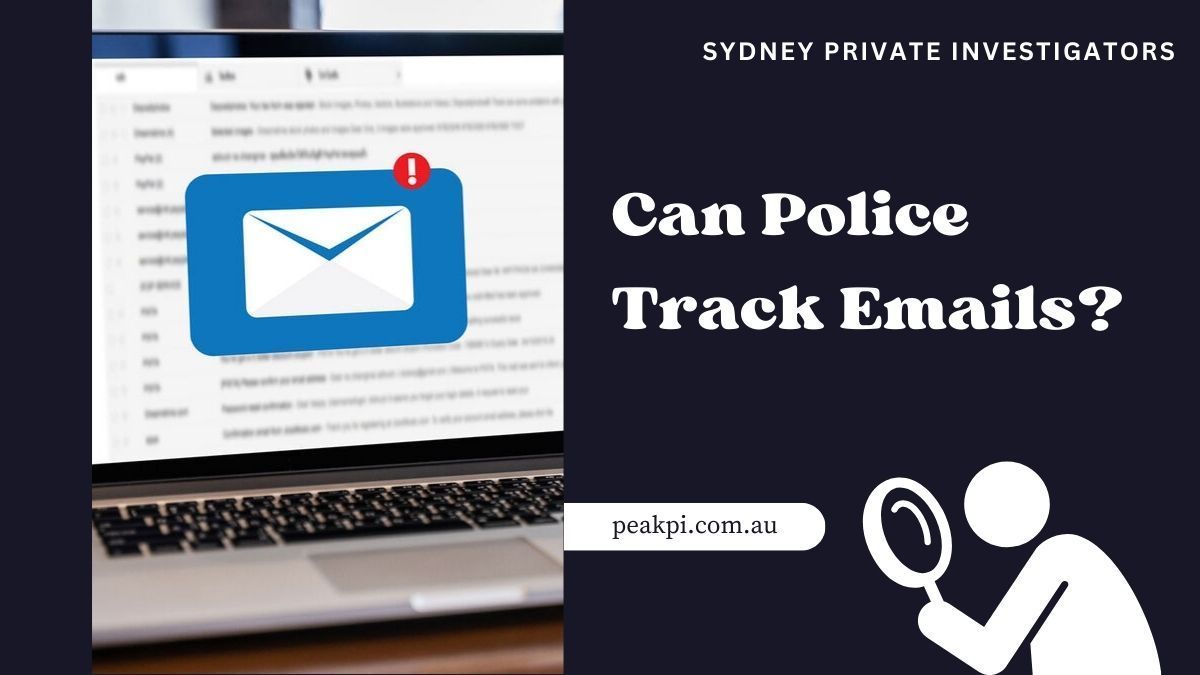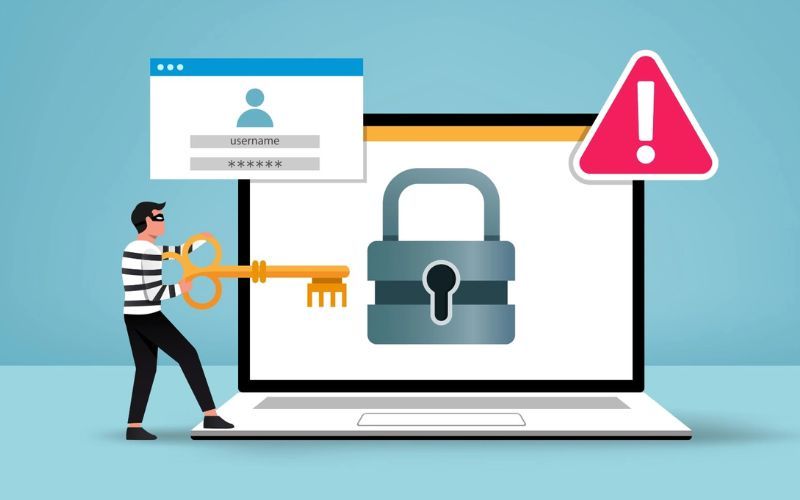Can Police Track Emails? Legality & Methods Explained
Concerned about your email privacy and whether the police can track your emails? This article clarifies the legality of email tracking by law enforcement in Australia. Understand the methods used, learn how to better protect your digital communications, and discover resources available to safeguard your privacy.
We'll cover practical tips and address common concerns about email surveillance, empowering you with the knowledge to navigate the complex landscape of digital privacy in Australia. Discover how to protect your sensitive information and maintain confidentiality in your online communications.

Can Police Track My Emails? Understanding the Legalities
Legal Requirements for Email Access in Australia
Australian law enforcement agencies can access your emails, but this access is strictly governed by the Telecommunications (Interception and Access) Act 1979. Generally, police need a warrant, a type of court order, based on "reasonable grounds" to access email content.
This means they must demonstrate a reasonable belief that accessing your emails will substantially assist in an investigation. Metadata, such as sender/recipient information and timestamps, may be accessed with a lower threshold of suspicion, often requiring only a subpoena. Oversight mechanisms, including judicial review, help ensure police adherence to these legal processes, safeguarding individuals' privacy rights.
When Can Police Access Emails Without a Warrant?
While warrants are the standard requirement, there are limited circumstances where police can access emails without one in Australia. In emergency situations where there's immediate threat to life or safety, warrantless access is permissible.
Your consent also allows police to view your emails. Providers may retain data based on their policies and can be compelled to preserve specific emails through preservation orders if there’s a reasonable suspicion they’re relevant to an investigation. However, such warrantless access remains rare, with strict limitations and safeguards to protect individual privacy rights.
What Information Can Police Obtain from Emails?
Email investigations can reveal a wealth of information. Police can obtain email content, including the message body, subject lines, and attachments. Metadata provides details like sender/recipient information, timestamps, IP addresses, and potentially geolocation data. This information can be valuable evidence in Australian courts.
The chain of custody, documenting how email evidence is collected, stored, and handled, must be meticulously maintained to ensure its admissibility and integrity in legal proceedings. All of this helps establish the authenticity and reliability of digital evidence.

How Do Police Track Emails? Investigating the Methods
Common Email Tracking Techniques Used by Law Enforcement
Australian law enforcement agencies employ various methods for tracking emails within the legal framework. They collaborate with Internet Service Providers (ISPs) and email providers to access user data, requiring legal instruments like warrants. Examining server logs can reveal connection details and user activity.
Specialized forensic software assists in recovering deleted emails and analyzing metadata. Data requests to tech companies are another avenue pursued, always adhering to legal processes and respecting privacy regulations. The precise methods utilized often depend on the specifics of the investigation and the nature of the information sought.
The Role of Email Providers in Australia
Australian email providers, including Gmail, Outlook, and others, are bound by Australian law regarding data disclosure to law enforcement. They must comply with valid warrants and other legal instruments. Each provider has specific data retention policies outlining how long emails and related information are stored.
These policies, along with Australian legislation such as the Telecommunications Act and the Privacy Act, govern how and when they cooperate with law enforcement. These providers must balance the need for privacy with their legal obligations to assist in lawful investigations.
Tracing Fake or Anonymous Emails: Challenges and Possibilities
Tracing emails from fake accounts or those using anonymization techniques presents challenges for Australian law enforcement. While tools like VPNs and disposable email addresses can offer a degree of anonymity, they aren't foolproof.
Investigators can sometimes uncover the true origins of these emails through sophisticated techniques, particularly if criminal activity is suspected. The dark web and encrypted email services present further complexities. Australian law enforcement continually adapts its methods to combat these challenges and pursue cybercrime investigations effectively within the bounds of the law.

Protecting Your Email Privacy: Practical Steps
Enhancing Email Security: Best Practices
Protecting your email privacy requires proactive steps. Use strong, unique passwords for your email accounts, and enable two-factor authentication for an added layer of security. Be vigilant against phishing scams, scrutinizing emails requesting personal information.
Consider using a reputable password manager to generate and securely store complex passwords. These practical measures significantly enhance your email security, minimizing the risk of unauthorized access and protecting your sensitive information.
Using Encryption and VPNs for Increased Privacy
VPNs and encrypted email services like ProtonMail or Tutanota offer significant privacy enhancements. VPNs mask your IP address and encrypt your internet traffic, making it harder for third parties to track your online activity.
Encrypted email uses end-to-end encryption, ensuring only you and the recipient can read your messages. While these tools provide strong protection, they aren't absolute guarantees of anonymity. Understanding their limitations is crucial for informed decision-making about your online privacy.
Understanding Your Rights Regarding Email Privacy in Australia
Australian law provides certain privacy protections regarding your emails. The Privacy Act 1988 outlines how personal information, including email data, should be handled. You have the right to access, correct, and challenge the collection and use of your data.
If you're concerned about potential
surveillance or data breaches, consulting a legal professional specializing in privacy and digital rights is highly recommended. Understanding your rights and seeking expert advice can help safeguard your email privacy within the Australian legal framework.

FAQs about Email Tracking by Law Enforcement
Can the police retrieve my deleted emails?
Even deleted emails can sometimes be recovered by law enforcement. Email providers often retain data for a certain period, even after deletion from a user's account. The recovery likelihood depends on factors like the provider's data retention policies, the type of deletion (e.g., trash vs. permanent deletion), and the sophistication of forensic tools used.
Is it legal for Australian police to monitor my emails without my knowledge?
Monitoring emails without your knowledge requires a warrant issued by a judge based on reasonable grounds, as mandated by Australian law. Covert surveillance is exceptionally rare, subject to strict legal oversight, and only justified under specific, limited circumstances, primarily related to serious criminal investigations. Transparency and adherence to legal processes are paramount in any law enforcement access to private communications.
What should I do if I suspect my emails are being unlawfully monitored?
If you suspect unlawful monitoring of your emails, immediately consult a legal professional specializing in privacy and digital rights in Australia. They can advise you on your rights and legal recourse options.
Reporting your suspicions to the Office of the Australian Information Commissioner (OAIC) is another important step, as they oversee privacy and data protection matters in Australia. Documenting any evidence supporting your suspicions can be crucial in such situations.
Do email providers notify users when Australian law enforcement requests their data?
Notification policies vary among email providers. Some may notify users about law enforcement data requests unless legally prohibited, such as by a gag order. Others might have stricter internal policies regarding disclosure.
It's important to review the privacy policies of your specific email provider to understand their stance on user notification in such circumstances. Transparency in these matters can be a key factor in choosing an email service.
Can police track emails sent through a VPN if I'm in Australia?
While VPNs can mask your IP address and encrypt internet traffic, their effectiveness in preventing email tracking by Australian law enforcement is not absolute. Although a VPN can make tracing more challenging, investigators may still be able to obtain information through other means, particularly if serious criminal activity is involved. The strength of the VPN's encryption and the provider's logging policies are key factors. VPNs should be viewed as one layer of privacy protection, not a foolproof method of anonymization.\
Peakpi - Providing Services for Email Tracking Investigations in Sydney
Content: Introduce Peakpi's expertise in investigations related to email tracking in Sydney, including supporting legal cases, conducting digital forensics, providing expert witness testimony, and advising on email security best practices. Include clear contact information (phone, email, website) and a prominent call to action (e.g., "Contact us today for a confidential consultation"). Emphasize discretion, confidentiality, and experience in navigating the complexities of Australian law.
- Phone number: 0401036356
- Email: constellation2401@gmail.com
- Website:
https://peakpi.com.au/

Read More:
- Importance of Evidence in Legal Case Investigations: Key Insights
- Debt Collection Strategies for Small Businesses
- How to Effectively Deal with Debt Collectors A Step-by-Step Guide
Understanding the legalities and methods surrounding email tracking by law enforcement in Australia is crucial for protecting your digital privacy. While police access to emails is strictly regulated, it's important to be aware of the legal framework, the methods employed, and the limitations of privacy tools.
Taking proactive steps to enhance your email security is essential. Remember, understanding your rights and seeking expert advice when needed are key to safeguarding your privacy in the digital age. Contact Peak PI for professional assistance with investigations and further guidance on protecting your privacy.


